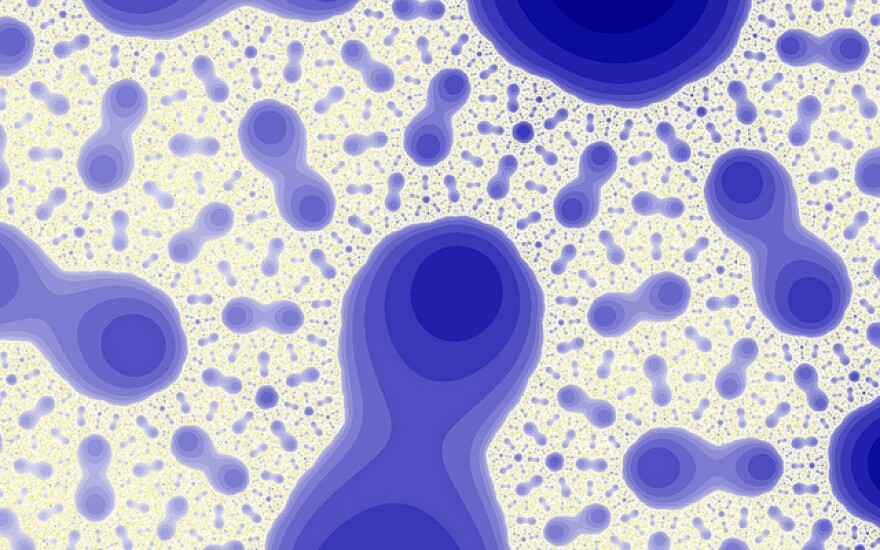What if we were more bacteria than human? You might imagine we’d be a walking sickness that was never healthy, looking to latch on to the next person to live on. But the truth is—we are.
There are more bacterial cells that make up the human body than our own cells. But just because they’re bacterial cells doesn’t mean they’re bad for us. In fact, they sustain human life. This week on “Take Care,” Dr. Raphael Kellman tells us how the bacteria that live in our bodies can determine and improve our health. Kellman is an internist, a pioneer in holistic medicine, and founder of the Kellman Center for Functional and Integrative Medicine in Manhattan. He's also the author of "The Microbiome Diet: The Scientifically Proven Way to Restore Your Gut Health and Achieve Permanent Weight Loss."
The bacteria most influential to our health can be found in our gut, which is the primary gathering spot for bacteria in the body, says Kellman. It’s called the microbiome, which simply means a particular environment where a group of microorganisms like to hang out. And our microbiome happens to be neighbors with our immune system, which controls our overall health.
“There’s definitely a symbiotic relationship between the immune system found in the gut, and the bacteria of the microbiome,” Kellman said.
Although we may think the bacteria need us for a place to live, it’s actually us who need them. Many vital organs, such as our immune system would not be able to function without them, Kellman says.
But this does not mean all bacteria are beneficial and you should go around licking toilet seats to improve your health. Just like people, there are good and bad bacteria. After all, most of us have heard our doctor say at some point, ‘it’s a bacterial infection, here’s an antibiotic.’
However, by keeping the good bacteria happy, it can help fight the bad bacteria -- and help us lose weight.
That’s right. The microbiome also plays a huge role in our digestion and how we absorb calories.
“Research has shown the gut bacteria, the microbiome, are involved in chloric extraction. In other words they determine how many calories are going to be extracted out of the food we’re eating,” Kellman said. “They control the gates of metabolism.”
So by keeping the bacteria of the microbiome happy, it allows our bodies to store a normal amount of calories from the food we eat, and not an excess amount that will later be turned into fat.
Along with chloric extraction, our microbiome can also affect our insulin levels, which if you have diabetes, you might know plays a role in weight gain and loss as well. When the microbiome is unhealthy it creates insulin resistance, which then causes the body to produce more insulin to ensure glucose enters our cells, Kellman says.
“Research shows that excess insulin leads to weight gain, fat deposition, and inflammation. All of this is orchestrated by the microbiome, so clearly this is the most important player in metabolism and keeping us healthy and maintaining a healthy weight,” Kellman said.
So how do you keep your microbiome healthy?
Eating foods that contain other healthy bacteria, such as kimchi and sauerkraut can promote microbiome health, Kellman says. When the bacteria in these foods get to your stomach they make friends with the other good bacteria in there, and voila you have a happy microbiome.
But just like us, the microbiome also needs fuel to keep it going. Good foods for this can include, jicama, artichokes, radishes, and similar foods, says Kellman.
By eating probiotic foods, Kellman says cravings for unhealthy and unnatural foods will even decrease.
“Then your own body, your own gut bacteria, will lead you to a healthy diet,” Kellman said.







